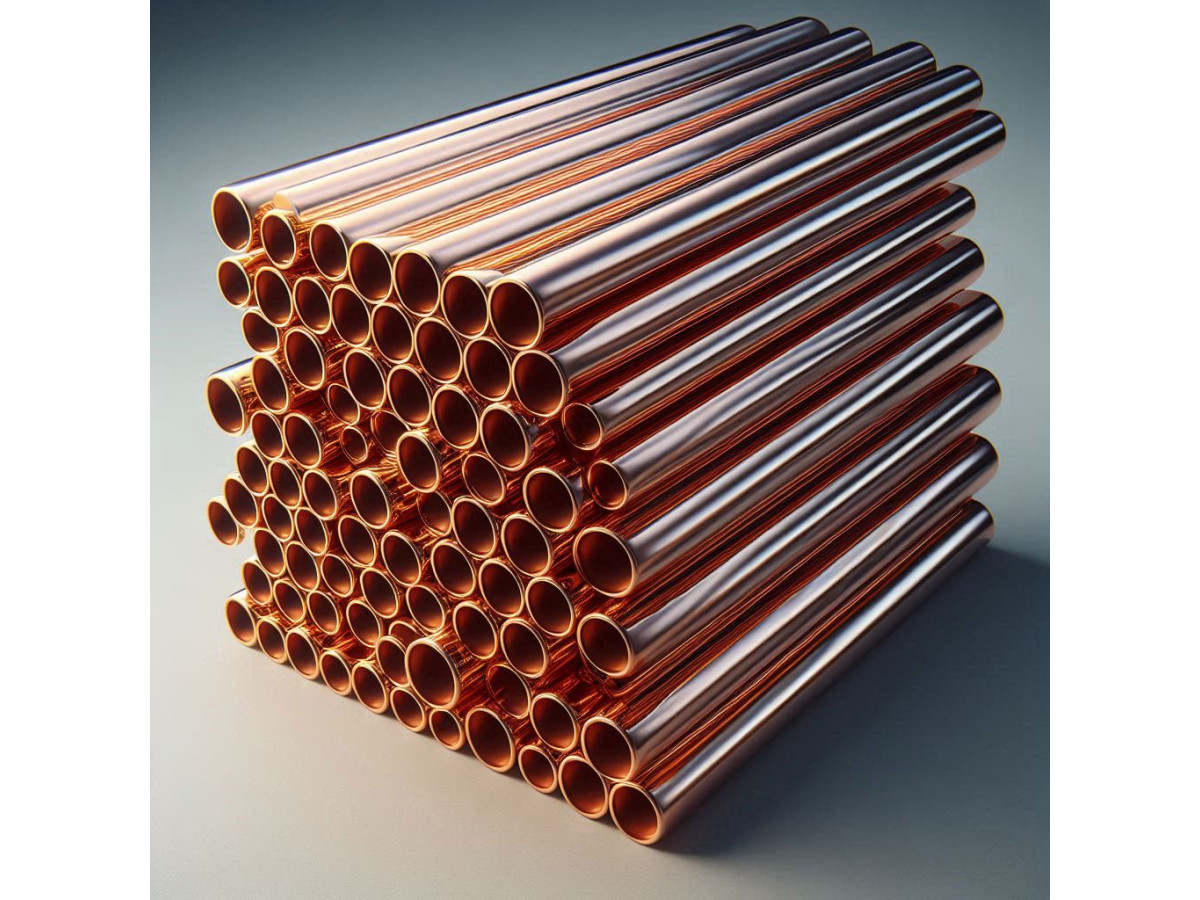Copper pipes are rightly considered one of the most versatile and reliable materials in modern construction and engineering systems. A well-informed choice of copper pipes can significantly enhance the quality and durability of any project—whether it’s the installation of water supply systems, heating systems, or industrial equipment.
Material Characteristics
Why copper? This metal possesses unique characteristics that make it indispensable in various fields. High corrosion resistance, excellent thermal conductivity, antibacterial properties, and a long service life are just some of the advantages of copper pipes.
Parameters for Material Selection
When choosing copper pipes, several factors must be considered. Let’s look at the key criteria that professionals and DIY enthusiasts should pay attention to.
Key Parameters for Choosing Copper Pipes:
- The strength, corrosion resistance, and durability of the pipe directly depend on the copper grade. There are several grades of copper, each with its specific properties. It’s important to select a grade that matches the expected operating conditions and system requirements.
- The wall thickness determines the pipe's strength and its ability to withstand high pressure. Different systems (water supply, heating, air conditioning) require pipes of varying thickness. Consider the working pressure in the system and the pipe diameter when selecting the optimal wall thickness.
- The diameter of the pipe is selected based on the required flow capacity of the system. The diameter affects the flow rate of liquid or gas, as well as the hydraulic resistance of the system. An incorrectly selected diameter can lead to reduced system efficiency or premature wear.
- There are several methods for connecting copper pipes: soldering, press fittings, and threaded connections. Each type of connection has its advantages and disadvantages, and the choice depends on the specific installation conditions and reliability requirements.
- Thermal treatment affects the properties of copper. Annealing makes copper softer and more ductile, facilitating its processing. However, annealing reduces the material’s strength. Hardening, on the other hand, increases strength but makes copper more brittle.
- The choice of thermal treatment type depends on the required mechanical properties of the The intended use of the pipe determines the requirements for its characteristics. For water supply, corrosion resistance is crucial; for heating, thermal conductivity is important; and for air conditioning, the ability to withstand low temperatures is essential.
- Operating conditions also significantly impact the choice of pipe. Aggressive environments, high temperatures, or pressure necessitate the use of special copper grades and specific types of connections.
- The quality of the pipe surface affects its durability and hygiene. A smooth inner surface prevents the formation of deposits and ensures unobstructed fluid flow. A high-quality outer surface protects the pipe from corrosion and enhances its appearance.
A professional approach to selecting copper pipes involves a detailed analysis of technical specifications and requirements for a specific application area. For instance, water supply systems require pipes with corrosion protection to prevent rust formation and extend service life. Conversely, heat exchange equipment should use pipes with high thermal stability that can withstand significant temperature fluctuations and pressure. This approach guarantees not only system efficiency but also safety during long-term operation.
Where to Buy and What to Consider When Purchasing?
When purchasing copper pipes, it is essential to carefully check for quality certificates that confirm compliance with established standards. It is also advisable to conduct a visual inspection, paying attention to the condition of the surface: it should be smooth, without dents, scratches, or other mechanical damage, as this can affect the pipe's durability and reliability in use.
The cost of copper pipes can vary significantly depending on the grade of metal, manufacturer, and technical specifications such as wall thickness and processing method. Do not skimp on quality, as the reliability of water supply and heating systems directly depends on the characteristics of the materials used. Investing in quality pipes will ensure long-term operation and reduce the risk of emergency situations.
In the online store UkrStarLine, you will find a wide range of copper pipes for any task—from household applications to professional engineering solutions. Our specialists will help you choose the optimal option considering all your requirements.
A well-informed choice of copper pipes is the key to the reliability and durability of your engineering systems!

